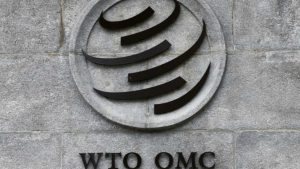Biden’s trade representative initiates retaliatory action against India’s Equalisation Levy on e-commerce players
Summary
USTR has the mandate to negotiate bilateral trade and investment issues of United States. It is now proceeding with the steps that could lead to imposition of tariffs or sanctions against India and five other countries.
United States Trade Representative (USTR) has initiated the process to retaliate against India and 5 other countries for levying a digital service tax on foreign companies that have impacted US enterprises.
On its part, India has maintained that it will take suitable action on any proposed US retaliatory action.
The 5 other countries include Austria, Italy, Spain, Turkey, and the United Kingdom.
Newly appointed USTR Katherine Tai said, “The United States remains committed to reaching an international consensus through the OECD process on international tax issues. However, until such a consensus is reached, we will maintain our options under the Section 301 process, including, if necessary, the imposition of tariffs.”
Commerce Ministry officials in Delhi said, “Government of India will examine the proposed action with the stakeholders concerned and would take suitable measures keeping its trade and commercial interest of the country and overall interest of its people.”
USTR has the mandate to negotiate bilateral trade and investment issues of United States. It is now proceeding with the steps that could lead to imposition of tariffs or sanctions against India and five other countries.
“USTR is proceeding with the public notice and comment process on possible trade actions to preserve procedural options before the conclusion of the statutory one-year time period for completing the investigations,” the USTR statement further added.
This is the first trade related friction witnessed between the Biden and Modi administration. Under the Trump Administration, the USTR had initiated a probe under Section 301 of the US Trade Act against what it calls Digital Service Tax imposed by 10 nations.
In January 2021, the USTR had released the findings of the probe that said that India and the other countries covered by the investigation discriminated against US companies by levying the tax.
India had imposed a 2 percent equalisation levy on sales of products and services by e-commerce companies in Budget 2020.

Elon Musk forms several ‘X Holdings’ companies to fund potential Twitter buyout
3 Mins Read
Thursday’s filing dispelled some doubts, though Musk still has work to do. He and his advisers will spend the coming days vetting potential investors for the equity portion of his offer, according to people familiar with the matter









 Listen to the Article
Listen to the Article  Daily Newsletter
Daily Newsletter













